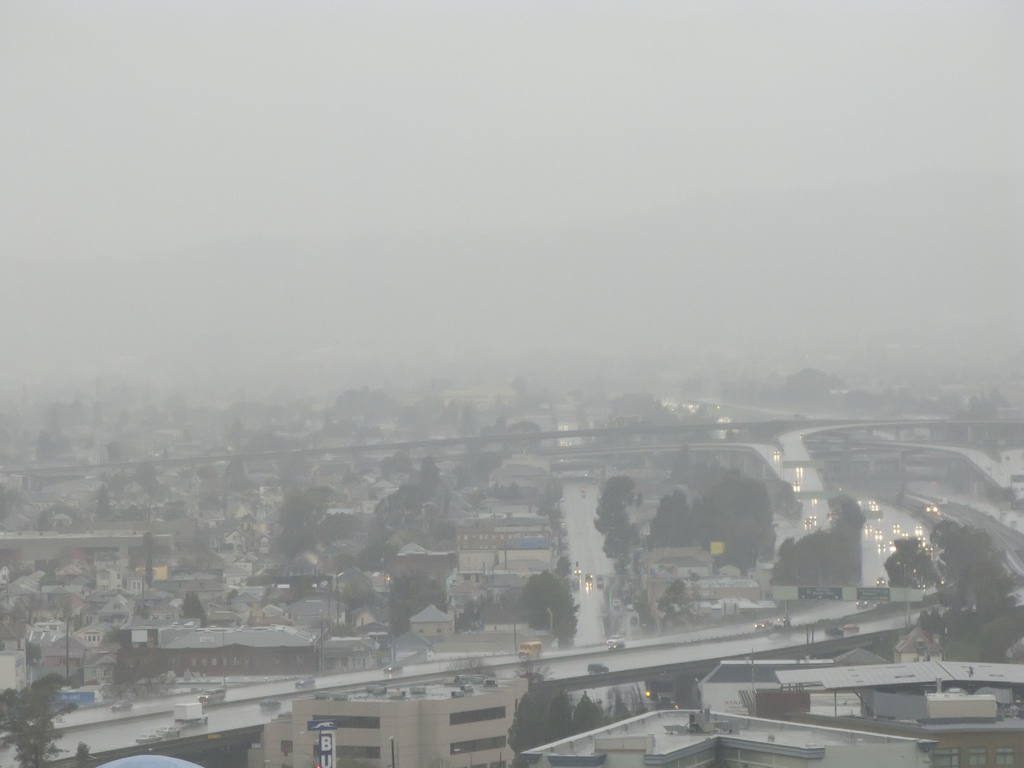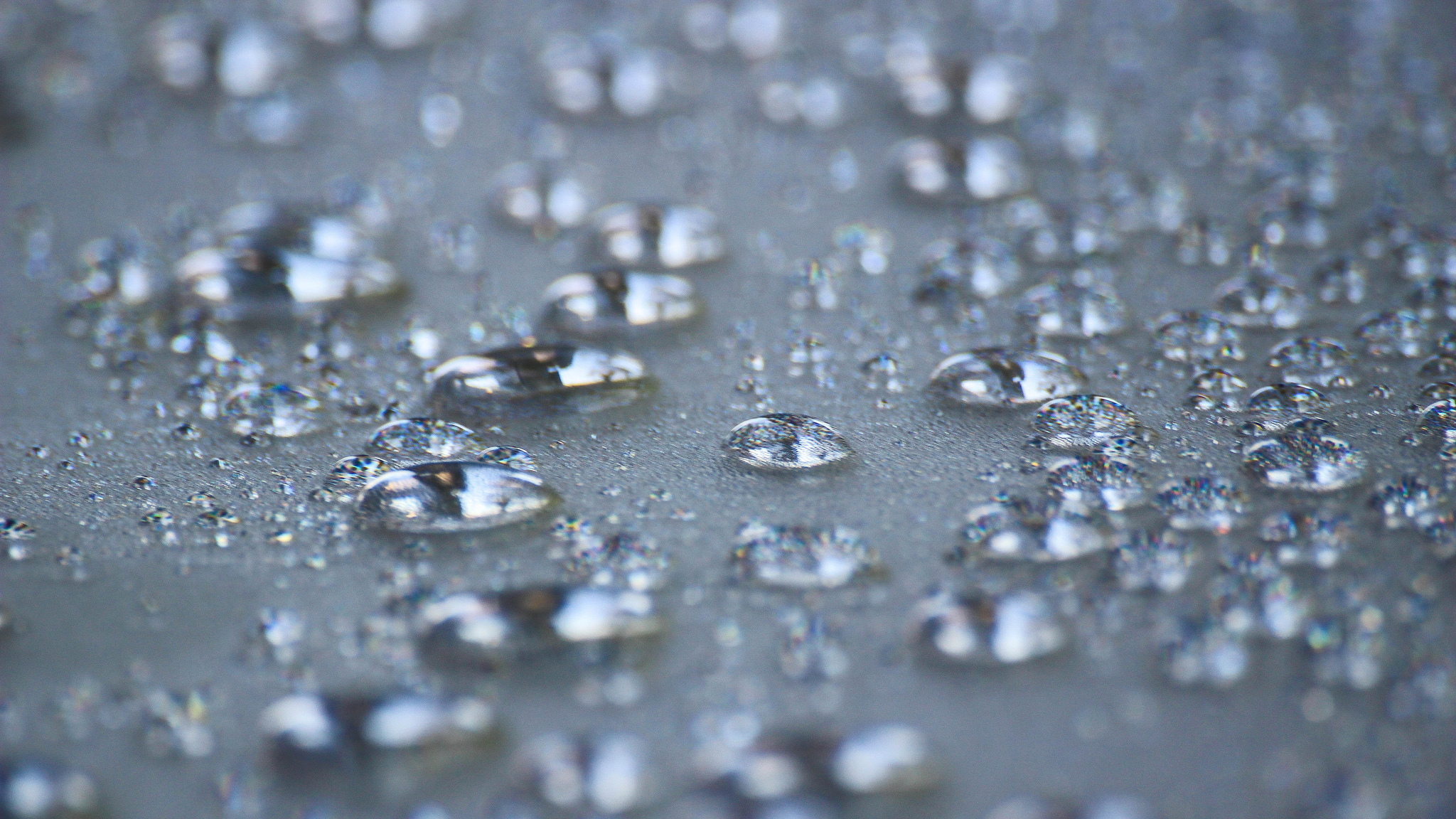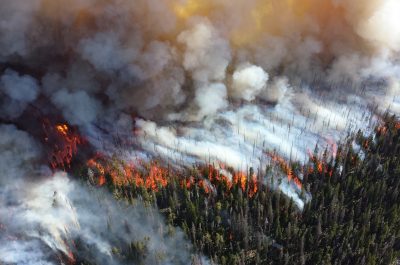Robin White has a self-interest that makes him “acutely aware” of whether it rains in northern California’s Bay Area: he’s a landscaper. With a crew. “I want it to rain so that I can have the day off but my crew wants to work so that they can make money,” he writes, on our website.
Rain’s on his mind because in an El Nino driven winter, Oakland, California has been seeing plenty of it. But he’s noticed something else over the years. “I have developed a funny feeling that it rains more on weekends than during the week,” he says. Is he right?
Why might it rain more on weekends than weekdays?
Robin White isn’t the first person to suspect that it rains more on the weekend. (It used to be called a “Sunday effect,” which may be where the phrase “Sunday drivers” come from.) That suspicion has been investigated numerous times with opaque and sometimes conflicting results. More on that in a bit.
A major human-induced driver of rain is particulate matter, or soot, bits that come from burning coal, oil and gas, as well as ozone, a gas generated by our cars, and industry. The two have combined to help form and enlarge clouds…and more clouds usually equals more rain.

Sunday drivers…of ozone
The state of California got interested in this particular weekend effect, because pollution is so much on the mind of its laws and the regulators that enforce them. In that area, scientific findings are well-documented – and, well, weird. In the San Francisco Bay Area, Los Angeles, and to a lesser extent, Sacramento, ozone is most plentiful on the weekend, even though you might expect to see it when the cars and trucks and other things that go are most active, on the other five days of the week.
Airborne pollution knows no borders
Pollution can have an impact far from where it’s created. Dust and soot takes five days to two weeks to cross from China to California. That pollution can make up almost a third of the air high over California cities, depending on the time of year.
In fact, atmospheric scientists have figured out that pollution from China is detectable over much of the United States, especially in the wintertime, when coal-burning is popular. Heavy smog particles travel on the jet stream across the Northern Hemisphere.
And climatologists have concluded that Chinese pollution is influencing global patterns. Not long ago, NASA scientists noticed that storms in the northwest Pacific gained strength during the same years that China experienced an economic surge.
Still, scientific observations of more ozone on the weekend or more pollution from China doesn’t translate directly into more weekend rain for Robin White. Instead, what scientists understand now is that those particles have a complex effect on long-term climate patterns. (This is the opaque and sometimes conflicting part.)
That’s in part because those particles have effects that sometimes cancel each other out. Particulate matter can make rain fall faster, but also can make raindrops on average smaller, which can thwart actual rainfall.
People made pollution, but now we’re making less
Human behavior that generates those influential particles is itself a moving target – since environmental laws, both federal and state, seem to be succeeding in curtailing emissions in some areas of the country.
The question of whether it rains more on weekends doesn’t just plague North America. Iceland and Greenland have seen wetter weekends in winter, and so has Germany. Pollution seems to give Spain milder winter weekends, but in the summer, Spain’s Saturday and Sundays are wetter and colder.
So to answer Robin’s question – yes, it’s possible he’s correct that it rains more on the weekends where he lives.
Nevertheless, the full meaning of weekend rain, in Oakland or anywhere else, remains a little mysterious. In some places the difference between a rainy weekend and a sunny Monday can be sliced pretty thin.
The Metropolitan Office, the national weather and climate bureau in London, offers a simple, human nature-based explanation for why that difference can seem so stark. A spokesman there has suggested that it could be that “we notice the bad weather more on our days off because it makes us feel fed up.”
Photo via Flickr/Susanne Nilsson




